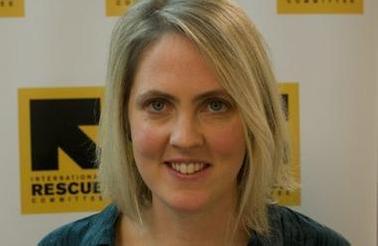A charity leader has been chosen to run as a Labour Party candidate in the upcoming UK general election.
Laura Kyrke-Smith, executive director of the International Rescue Committee (IRC) UK, announced last week on social media that she had been selected as Labour’s candidate in Aylesbury, Buckinghamshire.
“Labour is the change that Aylesbury needs and we’re determined to make it happen,” she posted on her X page, which does not name IRC UK as her employer.
A spokesperson for the charity told Civil Society that Kyrke-Smith “remains executive director of IRC UK and will be campaigning in her personal time”.
“Laura continues to work with senior leaders across the IRC to ensure the organisation delivers on its mission,” they said.
Kyrke-Smith previously chaired the Labour Campaign for International Development, a socialist society affiliated with the parliamentary party, between 2013 and 2017.
Before joining IRC UK in 2016, initially as its director of communications in Europe, she worked at Portland Communications as a partner and in the Foreign and Commonwealth Office as a speechwriter and policy analyst.
Conservative MP Rob Butler won the Aylesbury seat in 2019 with a majority of over 17,000 votes.
Tradition of MPs with charity experience
Rosamund McCarthy Etherington, partner at law firm Stone King, said there is a long tradition of MPs having a close prior connection to a charity.
“It’s also interesting that levels of voting and participation in democracy are much higher amongst those engaged in charities than in the public as a whole, so there is a close connection between charities and wider civic engagement,” she said.
“There has also been more recent case law on the ability for employees to engage in political activity being a protected philosophical belief.
“Some of the factors to take into account include ensuring that the charity remains independent, not using work time or resources on party political activity, and agreeing any reasonable risk mitigations in relation to communications and social media.
“In addition, many charities may grant some kind of sabbatical or unpaid leave, particularly in the short campaign when parliament is dissolved.”
Commission guidance
Charity Commission guidance on charities, elections and referendums states that charity employees can stand as MPs and “should declare this to their employer”.
“The trustees should then consider this potential conflict of interest and assess the risks for the charity in terms of both reputation and legal liability of the person taking on both roles simultaneously,” the guidance says.
The guidance adds that charities “must never support particular candidates even if those candidates belong to a range of political parties”.
It also warns charities to be “wary of associating or becoming associated in the minds of the public with a particular candidate or political party”.
“Where the charity supports a popular cause, candidates may see a benefit to themselves in being seen to support the charity, but the charity should be careful to ensure that it is not seen as reciprocating that support,” it reads.












